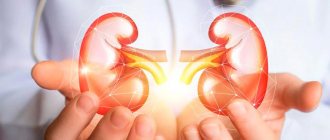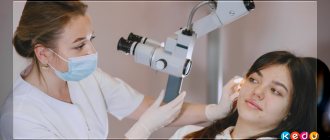A narcologist is a specialist who deals with diagnosis and treatment of various addictions to chemically active substances or processes. The quality of the services provided depends on the qualifications of the specialist and work experience. Quite often, residents of Moscow and the region do not want to go to drug treatment departments at their place of residence, preferring to call a narcologist at home. In what cases is this call really justified, and how is treatment done in the community?
Who is a narcologist?
To have the right to work as a narcologist, you must have a diploma from a higher educational medical institution and additionally obtain a specialization in narcology. Most often, narcologists become psychiatrists, or resuscitators and anesthesiologists, having received additional education.
A narcologist can work at a site in a district clinic. He consults patients, performs treatment in an outpatient setting, or issues a referral regarding the need for inpatient treatment. In addition, the local narcologist makes home visits to patients and, if necessary, interacts with the police department.
A doctor working in a drug treatment hospital treats patients with mental disorders (for example, alcohol delirium), and works with drug addicts and alcoholics during the period of abstinence.
A narcologist is also needed in the examination departments in order to carry out medical examination procedures.
Drug addiction doctors also work professionally in rehabilitation centers, where people with addictions try to get rid of them after the abstinence stage has been overcome.
Narcologist
There are many doctors of various specialties, but in the case of a person’s designated addictions, a person needs the help of a narcologist. This is a specialist who treats drug and tobacco addiction and alcoholism at any stage. In addition, it can cure gaming and internet addictions. Treatment can be carried out both in the hospital and at home. Also, a narcologist can deal with prevention and examination of the patient after treatment.
In what cases should you contact a narcologist?
Unfortunately, as statistics show, most people consult a doctor at the last stage of the disease, which can lead to a fatal outcome. Treatment should be started at an early stage, because this way complications can be avoided.
You should contact a narcologist if you notice aggression for no reason, sudden changes in mood, feelings of fear, melancholy, as well as thoughts and attempts to commit suicide.
Don’t forget about preventive measures that will help avoid such factors.
Dependency Definition
Symptoms such as a flushed face, drowsiness, hallucinations, memory impairment, and lack of sensitivity and taste buds may indicate addiction.
In the case of alcohol intoxication, symptoms such as incoherent speech and impaired coordination of movements should be highlighted. If such symptoms occur, you should immediately contact a narcologist, who in turn can refer you for tests, namely biochemical, general blood and urine tests, MRI, hair analysis, which help determine the type of drug consumed, screening and ultrasound.
It should be noted that a narcologist can work together with psychiatrists and psychologists to improve the effect and speed of treatment.
Rules of behavior at the reception
To cure his patient, a narcologist must know everything about him. Therefore, the patient should be as open as possible with his doctor. Moreover, today they are increasingly practicing anonymity, so you don’t have to worry about your own reputation.
Recommendations
- You should limit yourself in drinking alcohol;
- Do not try to use drugs;
- No smoking.
What does a narcologist do?
A narcologist provides professional assistance in the field of addiction. It can be either primary or repeated. It is possible to provide assistance to a person in a clinic, in an office at the place of residence, and even at home.
At the first meeting of the patient with the doctor, the person is diagnosed and the amount of necessary therapy is determined, and the patient is sent to undergo the necessary tests and undergo instrumental examinations.
Repeated consultations are aimed at clarifying the diagnosis, studying the information obtained from examination results and building a treatment regimen. It is possible that the patient may require inpatient therapy.
A narcologist can:
- Professionally get a person out of binge drinking;
- Help overcome addiction;
- Help you cope with withdrawal symptoms more easily;
- Organize drug and non-drug treatment;
- Perform a medical examination;
- Register with a dispensary;
- Remove from dispensary registration;
- Help challenge the results of an already completed examination.
It is possible to undergo anonymous counseling in a narcologist's office.
What diseases can a narcologist cure?
An addiction specialist will help you get rid of the following ailments:
- Alcohol-induced depression;
- The so-called “pseudoparalysis”; impaired speech, vision, coordination of movements, damage to internal organs caused by alcohol consumption;
- Epilepsy caused by binge drinking;
- Delusional paranoid psychosis in the acute phase, caused by prolonged alcohol consumption, is accompanied by delusions, obsessions, illusions and other mental problems;
- One of the variants of alcoholic encephalopathy is Korsakov’s alcoholic psychosis (serious memory impairment);
- The so-called “delirium tremens”;
- Delusions and hallucinations of alcohol origin;
- Drug addiction;
When is it necessary to contact a narcologist?
You can come to the doctor for a consultation either independently or by receiving a referral from another specialist. This could be a psychologist, psychiatrist, therapist, etc. An emergency call is necessary:
- In case of drug overdose;
- In case of severe alcohol poisoning;
- If you need to get out of binge drinking;
- If necessary, detoxification in case of severe and severe withdrawal syndrome.
In addition, the patient may need scheduled visits to a narcologist when he is already receiving treatment for drug addiction, alcohol addiction or other diseases.
Consultation with a specialist will also be required for examination to determine the state of alcohol or drug intoxication.
Based on the reason for the appeal, it can be either voluntary or forced. As for outpatient visits, it is always voluntary. If a person does not think that he needs the help of a narcologist, then he can refuse it. However, in this case, all responsibility for his health is removed from the doctors. The same applies to refusal to undergo an examination to detect alcohol intoxication. Only in this case does a person take responsibility for his actions, which are considered by the courts as indirect confirmation of the presence of such intoxication.
Compulsory treatment in a hospital setting is possible:
- By court decision, when a person committed a crime in a state of altered consciousness;
- When acute psychosis is detected;
- With exacerbation of chronic alcoholic and drug psychoses;
- When there is a threat to the life and health of both one’s own and someone else’s as a result of addiction.
A relative may come to see a narcologist who is worried about the health of a loved one, or wants to confirm or refute his doubts about his addiction. However, help in this case is quite limited in scope, since it is not possible to diagnose a person in absentia or prescribe treatment for him. However, the doctor can advise what behavioral tactics should be chosen in order to persuade the patient himself to come to the appointment.
When does it become necessary to visit a specialist?
For treatment by a psychiatrist-narcologist to be beneficial, the person himself must want to get rid of the addiction. The following signs indicate the need to consult a specialist:
- frequent dramatic changes in mood;
- apathy;
- lethargy and drowsiness;
- inability to control one’s actions and actions;
- loss of interest in something.
If this symptomatic picture arose against the background of regular drinking or taking drugs, you need to seek help from a professional before changes in the psyche become irreversible.
How is an appointment with a narcologist?
To begin with, the specialist will interview the patient, find out his character traits, determine his mental and intellectual integrity, the adequacy of his psyche, the nature of his perception of his own personality, etc.
The doctor will be interested in the duration of use of drugs and alcohol and the characteristics characteristic of the individual patient’s addiction. This concerns the duration of the binges, the dosage of the psychoactive substances needed for the state of euphoria, the period of abstinence, etc. In addition, it is necessary to inform the doctor about previous treatment attempts, if any.
The narcologist finds out what health problems the patient has: with internal organs, with the nervous system, mentally.
When the conversation is completed, the doctor examines the patient, assessing:
- Human well-being;
- Physiological parameters (body weight and its relationship with height);
- Condition of the skin;
- Nervous and muscle tone;
- Pulse;
- Arterial pressure;
- Breathing function.
If necessary, the narcologist gives a recommendation to visit another specialist, for example, a neurologist, therapist, psychiatrist, etc. At the end of the appointment, the doctor gives the patient a diagnosis and recommends treatment.
Is drug addiction a disease?
Addiction begins with the wrong choice. But one cannot categorically perceive craving for drugs as a bad habit. This is a serious disease that cannot be overcome with willpower!
Therefore, the most effective method of fighting drugs is timely prevention: informing adolescents about the consequences of drug addiction, forming trusting relationships in the family and team, and saturating their leisure time with useful activities.
Healthy people with a stable psyche, who understand themselves and those around them well, are not prone to addictions to the same extent as people with mental and psychological problems.
The effect of drugs on the body is incredibly destructive. The cardiovascular system gets hit the hardest. Blood pressure decreases, oxygen deficiency occurs, metabolism and oxygen starvation of internal organs are disrupted. Heart function deteriorates. Pneumonia often occurs.
Under the influence of drugs, the digestive system suffers. The drug addict's appetite decreases, nutrition becomes irregular and inadequate. The ability of the intestines to contract is impaired, and nutrients are no longer absorbed by the body. The liver, which is responsible for removing toxic substances from the body, is not in a better position. The risk of cirrhosis increases.
Long-term drug abuse by men leads to impotence and other dysfunctions of the genitourinary system.
If you smoke a drug, your lungs suffer greatly. Even smokers of “harmless” marijuana suffer from chronic bronchitis and have an increased likelihood of developing lung cancer.
What diagnostic methods does a narcologist use?
- TANK;
- OAM;
- UAC;
- ECG;
- X-ray examination of the chest;
- Tests to determine drug content in biological fluids and tissues;
- Express tests for the determination of narcotic substances;
- Hair drug testing;
- Analysis for antibodies to narcotic substances, etc.
The treatment prescribed by the doctor is always versatile. It includes conservative therapy and providing psychological assistance to the patient. Depending on the situation, therapy may be recommended in a hospital setting or in a rehabilitation center. Equally important is the support of loved ones, occupational therapy and social rehabilitation.







